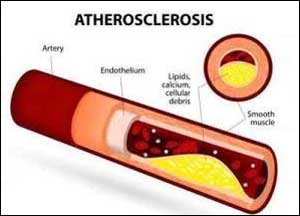- Home
- Editorial
- News
- Practice Guidelines
- Anesthesiology Guidelines
- Cancer Guidelines
- Cardiac Sciences Guidelines
- Critical Care Guidelines
- Dentistry Guidelines
- Dermatology Guidelines
- Diabetes and Endo Guidelines
- Diagnostics Guidelines
- ENT Guidelines
- Featured Practice Guidelines
- Gastroenterology Guidelines
- Geriatrics Guidelines
- Medicine Guidelines
- Nephrology Guidelines
- Neurosciences Guidelines
- Obs and Gynae Guidelines
- Ophthalmology Guidelines
- Orthopaedics Guidelines
- Paediatrics Guidelines
- Psychiatry Guidelines
- Pulmonology Guidelines
- Radiology Guidelines
- Surgery Guidelines
- Urology Guidelines
Vegetables prevent subclinical atherosclerosis in carotid arteries

Dietary patterns rich in fruits and vegetables are considered to reduce atherosclerotic disease presentation and are reported to be inversely associated with subclinical measures of atherosclerosis, such as carotid artery intima‐media thickness (IMT) and plaque.Dr.Lauren Blekkenhorst, at the University of Western Australia in Crawley and colleagues, conducted an Observational Study and found that Elderly women who ate more vegetables showed less carotid artery wall thickness.It was further observed that Cruciferous vegetables including broccoli, cauliflower, cabbage and Brussels sprouts proved the most beneficial.The study has been published in Journal of the American Heart Association.
"This is one of only a few studies that have explored the potential impact of different types of vegetables on measures of subclinical atherosclerosis, the underlying cause of cardiovascular disease," said Lauren Blekkenhorst, study lead author and Ph.D. candidate at the University of Western Australia in Crawley.
Researchers distributed food frequency questionnaires to 954 Australian women aged 70 and older. The women noted their vegetable intake in a range from "never eating vegetables" to "three or more times per day". Vegetable types included cruciferous, allium (for example, onions, garlic, leeks, and shallots), yellow/orange/red, leafy green, and legumes. Sonograms were used to measure carotid artery wall thickness and entire carotid trees were examined to determine carotid plaque severity.
Researchers observed a 0.05 millimeter lower carotid artery wall thickness between high and low intakes of total vegetables. "That is likely significant because a 0.1-millimeter decrease in carotid wall thickness is associated with a 10 percent to 18 percent decrease in risk of stroke and heart attack," Blekkenhorst said.
In addition, each 10 grams per day higher in cruciferous vegetable intake was associated with 0.8 percent lower average carotid artery wall thickness. Other vegetable types did not show an association with carotid artery wall thickness in this study.
"After adjusting for lifestyle, cardiovascular disease risk factors (including medication use) as well as other vegetable types and dietary factors, our results continued to show a protective association between cruciferous vegetables and carotid artery wall thickness," Blekkenhorst said.
Increasing vegetables in the diet with a focus on consuming cruciferous vegetables may have benefits for the prevention of subclinical atherosclerosis in older adult women. However, due to the observational nature of this study, a causal relationship cannot be established. "Still, dietary guidelines should highlight the importance of increasing consumption of cruciferous vegetables for protection from vascular disease," Blekkenhorst said.

Disclaimer: This site is primarily intended for healthcare professionals. Any content/information on this website does not replace the advice of medical and/or health professionals and should not be construed as medical/diagnostic advice/endorsement or prescription. Use of this site is subject to our terms of use, privacy policy, advertisement policy. © 2020 Minerva Medical Treatment Pvt Ltd